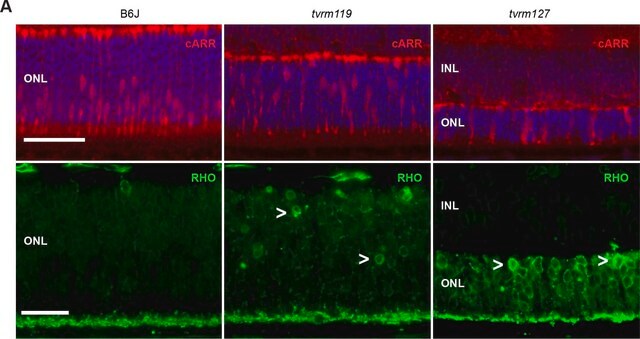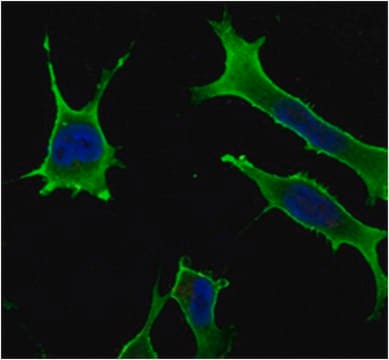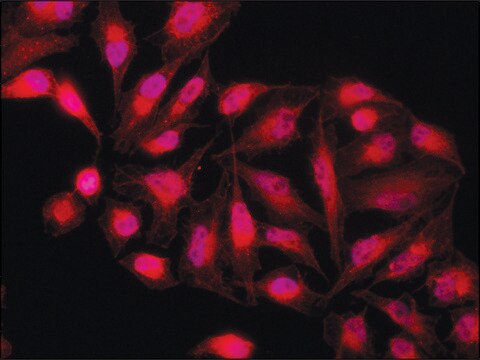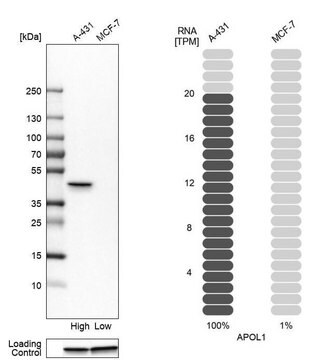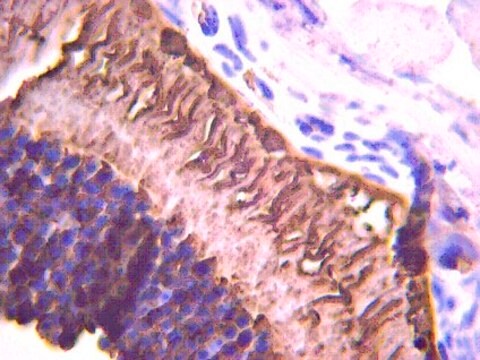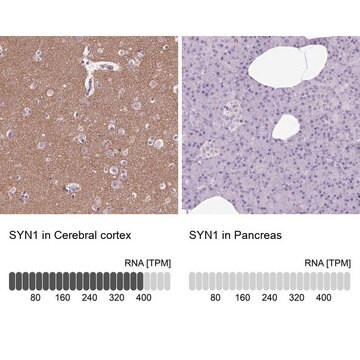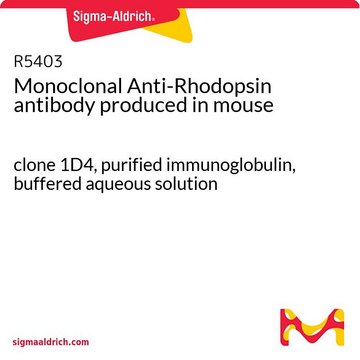MABS385
Anti-APOL1 Antibody, clone 1D4
ascites fluid, clone 1D4, from mouse
Synonym(e):
APOL, APO-L, APOL-I, Apolipoprotein L1, Apolipoprotein L, Apolipoprotein L-I
About This Item
Empfohlene Produkte
Biologische Quelle
mouse
Qualitätsniveau
Antikörperform
ascites fluid
Antikörper-Produkttyp
primary antibodies
Klon
1D4, monoclonal
Speziesreaktivität
human
Methode(n)
western blot: suitable
Isotyp
IgG1
UniProt-Hinterlegungsnummer
Versandbedingung
wet ice
Posttranslationale Modifikation Target
unmodified
Angaben zum Gen
human ... APOL1(8542)
Allgemeine Beschreibung
Immunogen
Anwendung
Qualität
Western Blotting Analysis: A 1:500-2,000 dilution of this antibody detected APOL1 in human plasma.
Optimal working dilutions must be determined by end user.
Zielbeschreibung
Hinweis zur Analyse
Human plasma lysate
Sie haben nicht das passende Produkt gefunden?
Probieren Sie unser Produkt-Auswahlhilfe. aus.
Lagerklassenschlüssel
12 - Non Combustible Liquids
WGK
nwg
Flammpunkt (°F)
Not applicable
Flammpunkt (°C)
Not applicable
Analysenzertifikate (COA)
Suchen Sie nach Analysenzertifikate (COA), indem Sie die Lot-/Chargennummer des Produkts eingeben. Lot- und Chargennummern sind auf dem Produktetikett hinter den Wörtern ‘Lot’ oder ‘Batch’ (Lot oder Charge) zu finden.
Besitzen Sie dieses Produkt bereits?
In der Dokumentenbibliothek finden Sie die Dokumentation zu den Produkten, die Sie kürzlich erworben haben.
Unser Team von Wissenschaftlern verfügt über Erfahrung in allen Forschungsbereichen einschließlich Life Science, Materialwissenschaften, chemischer Synthese, Chromatographie, Analytik und vielen mehr..
Setzen Sie sich mit dem technischen Dienst in Verbindung.